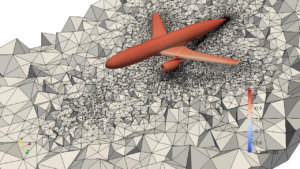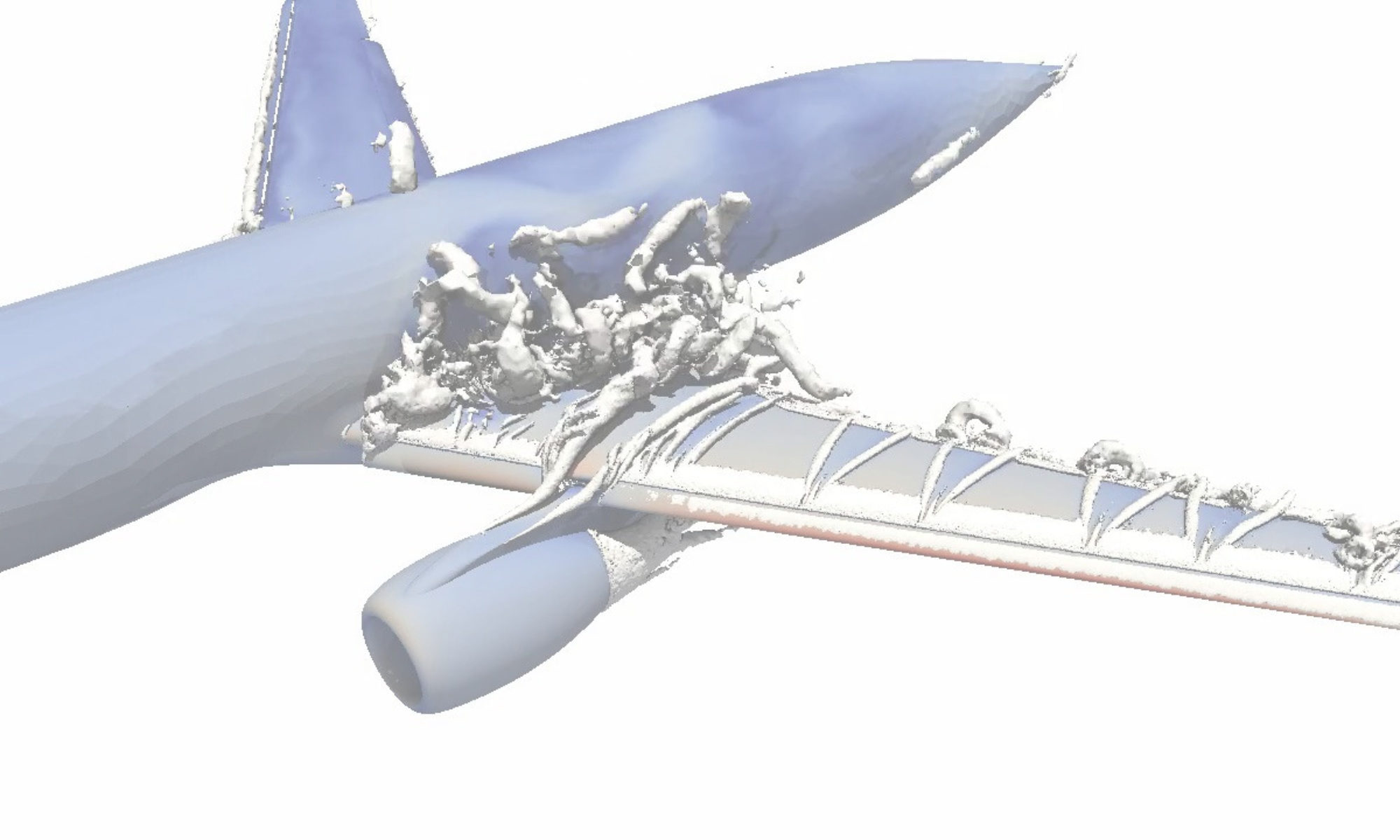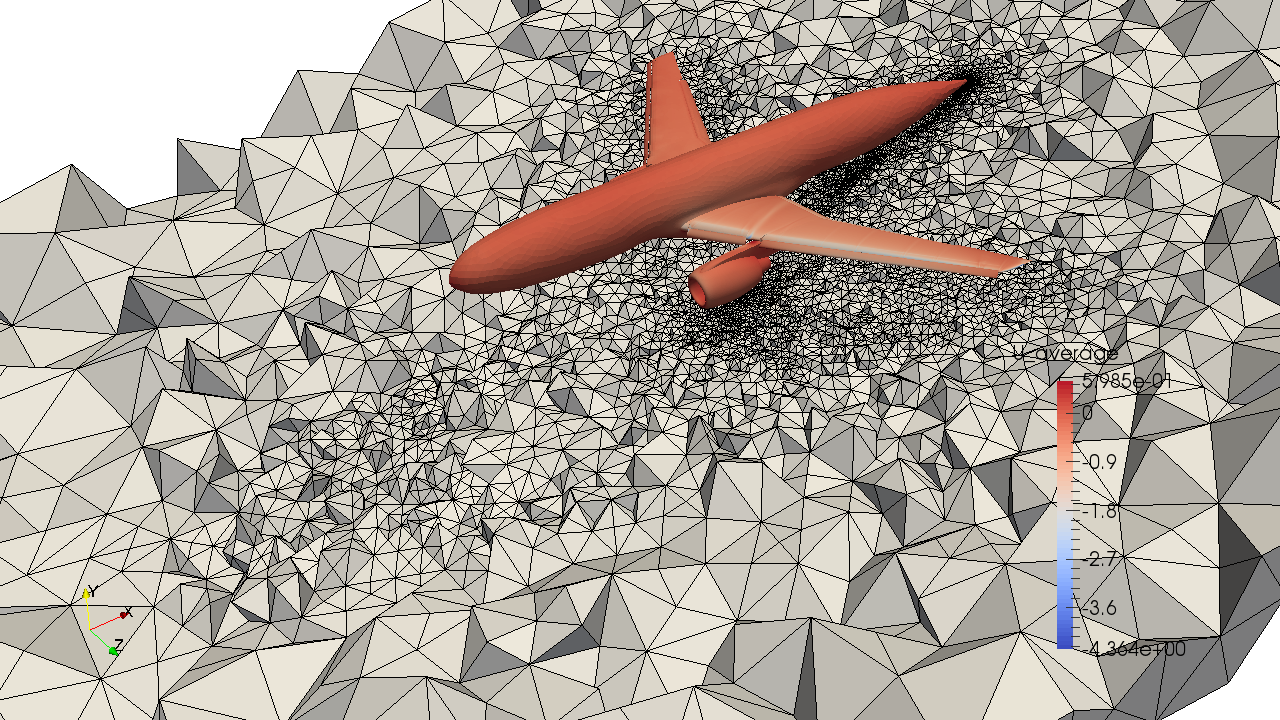 Our DFS methodology is based on a piecewise polynomial approximation in space and time and with a numerical stabilization in the form of a weighted least-squares method based on the residual. The methodology has several unique aspects which we hope can advance the field in new directions:
Our DFS methodology is based on a piecewise polynomial approximation in space and time and with a numerical stabilization in the form of a weighted least-squares method based on the residual. The methodology has several unique aspects which we hope can advance the field in new directions:
- The incompressible Navier-Stokes Equations (NSE) are discretized directly, without applying any filter. Thus, the method does not approximate any Large Eddy Simulation (LES) filtered solution, but is instead an approximation of a weak solution, satisfying the weak form of the NSE.
- For this method, we have a posteriori error estimates of quantities of interest with respect to a weak solution, which form the basis for our adaptive mesh refinement algorithm. The a posteriori error estimates are based on the solution of an associated adjoint problem with a goal quantity (such as a drag coefficient) as data.
- We model turbulent boundary layers by a slip boundary condition which is a good approximation for small skin friction stress, which gives enormous savings in computational cost by not having to resolve a very thin boundary layer.

